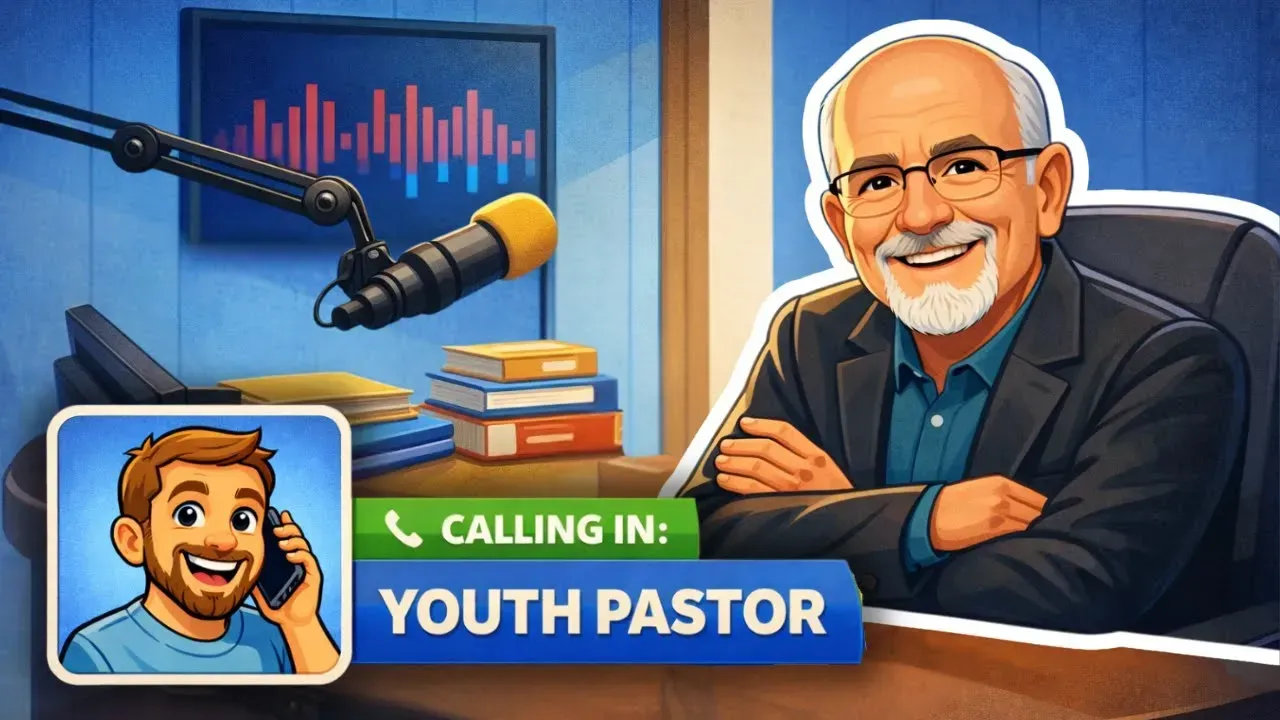How Your Youth Ministry Can Help DOUBTING Teens
Turning Student Doubt Into Deeper Discipleship
What if doubt isn’t the enemy of faith—but one of its most powerful catalysts? Many students are wrestling with long-held beliefs about God and the Bible, but often feel like church is the last place they can voice those questions. In this conversation, Ryne and Keith explore how youth pastors can cultivate a culture where students process doubt honestly—and come out stronger in their walk with Christ.
1. Respond Calmly—Not with Panic
Just like a toddler’s reaction often mirrors a parent’s, students take their cues from how we respond to their questions. If we act fearful or defensive, they’ll assume something is wrong. But when we calmly say, “That’s a great question, I’ve wondered that too,” students feel safe and normal. Honest acknowledgement builds trust.
2. Model Vulnerability and Authenticity
Students need to hear leaders admit that even pastors have wrestled with doubts. Ryne shared how hearing a respected professor confess to seasons of doubt helped him prepare for his own. When leaders normalize doubt, students don’t interpret questions as a faith crisis—but as a natural part of spiritual growth.
3. Create Spaces for Intentional Dialogue
It’s not enough to simply allow questions—we must intentionally invite them. Whether it’s structured “dinner and dialogue” events, summer camp meals, or small group prompts like “Is there anything about God or the Bible you’re struggling to believe?”, students benefit from environments designed for honest discussion.
In Ryne’s ministry, even role-playing (turning his hat backward to indicate he’s playing a skeptic) helps students think critically and articulate responses to difficult topics.
4. Acknowledge That Doubt Can Strengthen Faith
Faith is not the absence of doubt; it’s the ability to push through it. James 1 reminds us that the testing of our faith produces perseverance. Many times, doubt surfaces right before a moment of growth or obedience. Helping students see doubt as an invitation to dig deeper leads to a more resilient faith rooted in Scripture—not inherited belief.
5. Draw Them Back to the Reliability of God’s Word
Students today are often fine with talking about God or even Jesus—but skeptical of the Bible itself. That’s why youth workers need to confidently show that Christianity has nothing to hide. Encourage students to search the Scriptures. Compare opposing worldviews fairly. Be a “Berean” (Acts 17:11) and verify truth rather than accepting it blindly.
6. Don’t Pretend to Have All the Answers
It’s okay—and often necessary—to say, “I don’t know.” Some questions won’t be fully answered this side of heaven. The goal isn’t to remove all mystery, but to anchor students in what is clear: the person of Jesus, the gospel, and the trustworthiness of God. Encourage them not to let secondary questions paralyze their obedience in primary areas.
7. Pray With and For Students
Doubt is often more than an intellectual problem—it’s spiritual warfare. Scripture calls us to pray continually, especially for those under attack (Eph. 6:18). Praying with students reminds them that they’re not alone and that God welcomes their honest questions. It helps re-center their hearts and reasserts their identity in Christ.
Today’s students want to ask hard questions. If we don’t provide an environment where they can wrestle biblically, they’ll go somewhere else that won’t lead them back to truth. Ultimately, walking with students through doubt isn’t just about answering big questions—it’s about discipling them in an honest, faith-filled relationship with Jesus who welcomes both belief and honest struggle.











